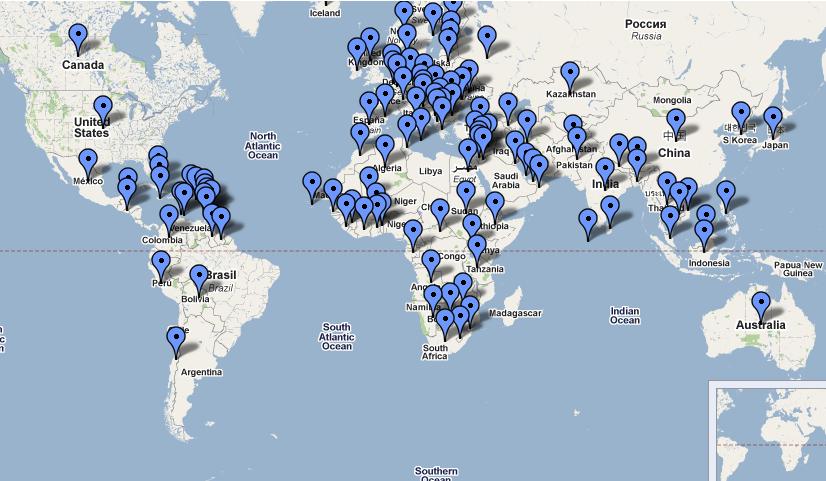This past spring two free services for searching and following bills in the fifty states and the U.S. Congress have appeared. LegiNation, Inc. launched BillTrack50 in April. BillTrack50 has a free component and a subscription component. (More about the differences in a minute.) GovTrack, provided as a free service by Civic Impulse, LLC, has been around awhile as a source of information about Congress. In June, Civic Impulse rolled out state legislation tracking in beta. It draws its data from LegiNation and LegiScan, Inc., with some additional data from Open States.
It turns out that having both is a good thing, as each provides free tools that the other does not.
BillTrack50’s free product is called Quick Search. It allows the registered user to search simultaneously the bills of any or all of the 50 states, the District of Columbia, and Congress. The user can also choose to search a selection of states at the same time. The search engine searches the entire text of the chosen jurisdiction’s bills, and it allows the user to specify terms that the bill text must include, terms that it may include, and terms that it cannot include. Bills can also be filtered by sponsor and by bill number. The search results include state, bill number, bill name, a summary if available, latest action, and latest action date. A link by each result takes the user to details about the bill, including sponsor (with a link to a page with significant information about the sponsor), full bill text, action history, vote history, and associated documents. Full bill text includes previous versions, which can be compared red-line style. Bill text can be exported to HTML, RTF, or Legix (*.slim).
BillTrack50’s free product does not offer saved searches or alerts of bill action; however, subscribers can create Custom Bill Sheets, which includes saved searches and saved bills. They can also create custom alerts, stakeholder pages, and widgets (see Custom Bill Sheets for more information).
GovTrack’s state legislation offerings have less extensive search capabilities. From its State Legislation menu, GovTrack offers the user a choice between searching a specific state’s bills and searching the bills of all 50 states (the District of Columbia is not included). If all 50 states are chosen, the only search tool is keyword searching. If one specific state is chosen, the user may specify the session and the chamber as well (although chamber information is not always available). In all instances only the bill title and summary are searched, not the full bill text. The length of the summary depends upon the state. The results list includes state, session, bill number, and bill title. Clicking on the bill’s link takes the user to a page giving the history of the bill, link(s) to the full bill text and sometimes related bill text, and links to other available documents (such as voting records).
GovTrack50 also offers free bill-tracking capability. It allows the user to set up e-mail, RSS, and onsite feeds for each state, either for every legislative action or for individually selected bills. Moreover, the user may set up multiple feeds containing the user’s choice of state(s) or bill(s), and for each feed choose whether to receive e-mail updates daily, weekly, or not at all. The user’s feeds, which the user can name, can be viewed on GovTrack’s site as well. Thus, for example, a user could have three feeds: one that updates the user weekly by e-mail about all California legislative activity, one that updates the user by RSS about three specific New York bills, and one that updates the user about five specific bills from five different states, when the user chooses to log in to GovTrack’s site.
In sum, BillTrack50’s free search capabilities paired with GovTrack’s options for e-mail and RSS updates make both services well worth exploring for those interested in tracking state legislative activity.
 The Journal of Open Access to Law is making its official debut this week. The journal describes itself as “an open-access, peer-reviewed academic journal of international scope. Its purpose is to promote international research on the topic of open access to law.”
The Journal of Open Access to Law is making its official debut this week. The journal describes itself as “an open-access, peer-reviewed academic journal of international scope. Its purpose is to promote international research on the topic of open access to law.”




